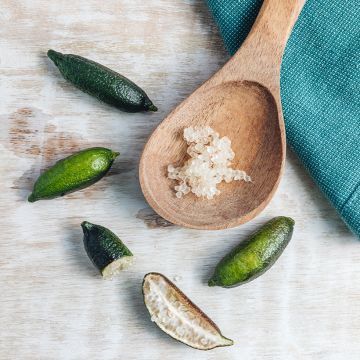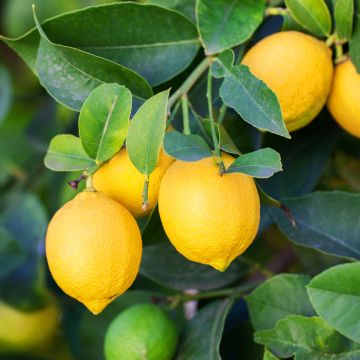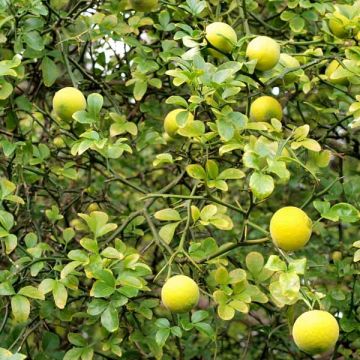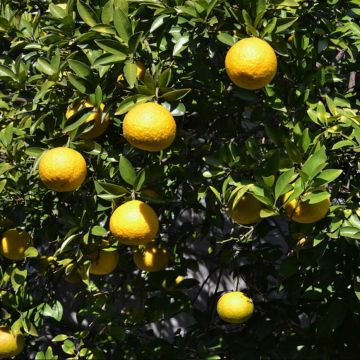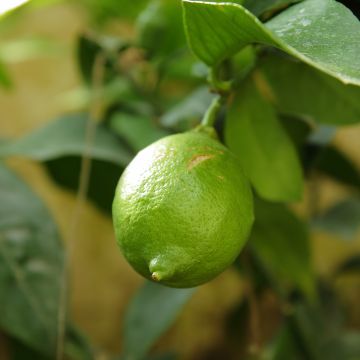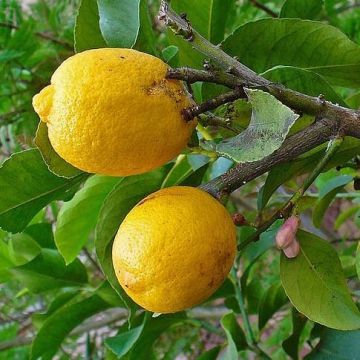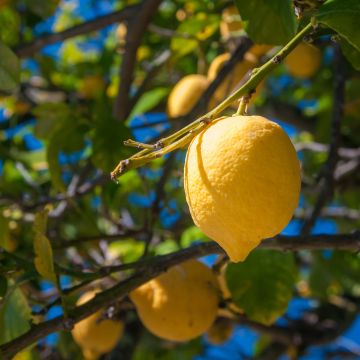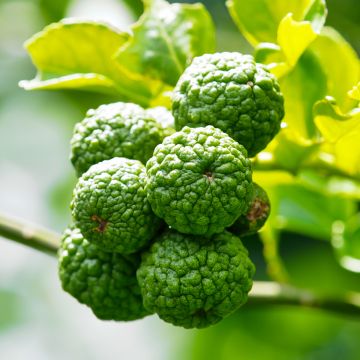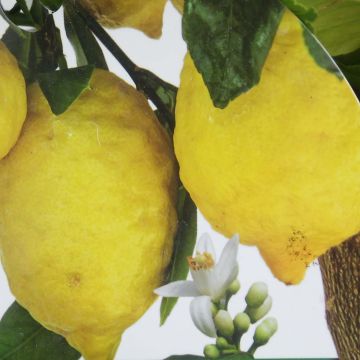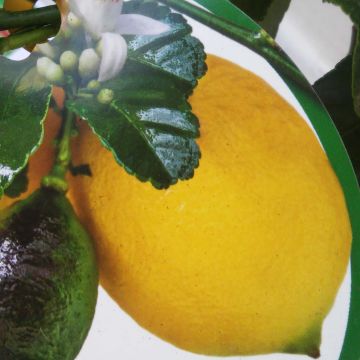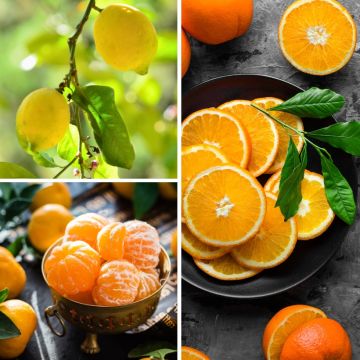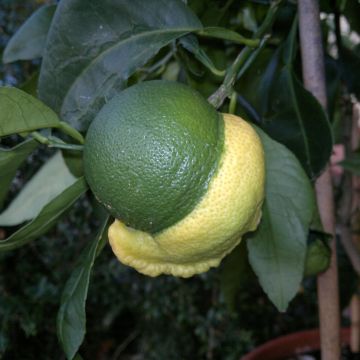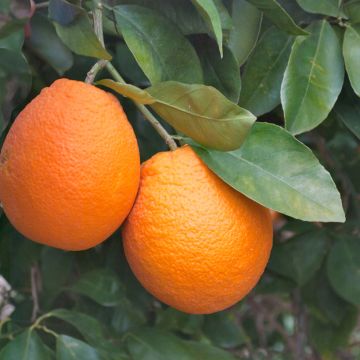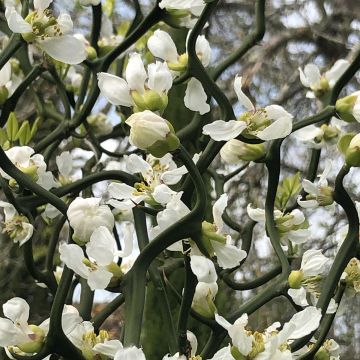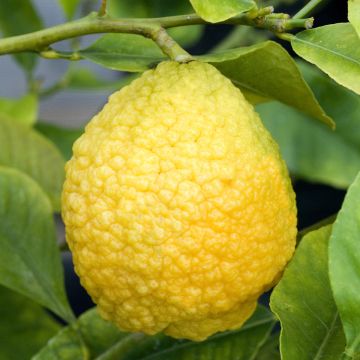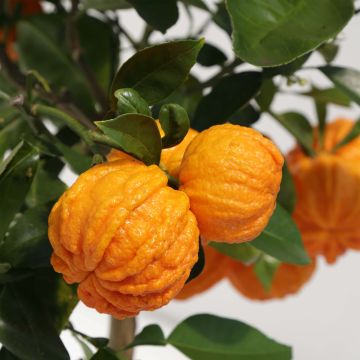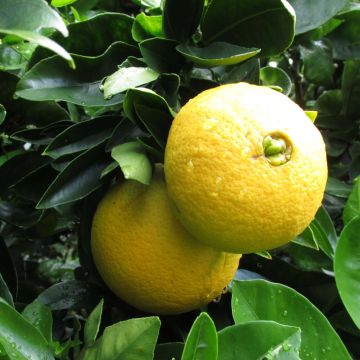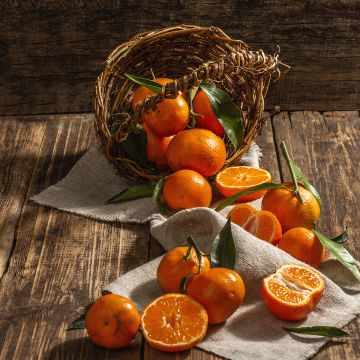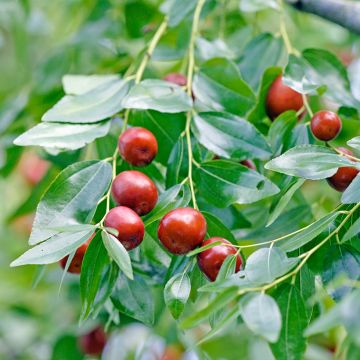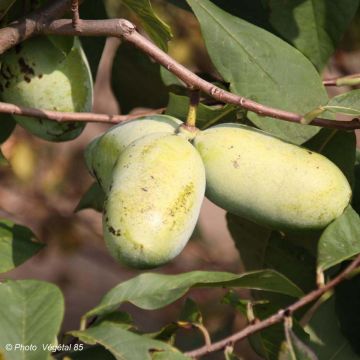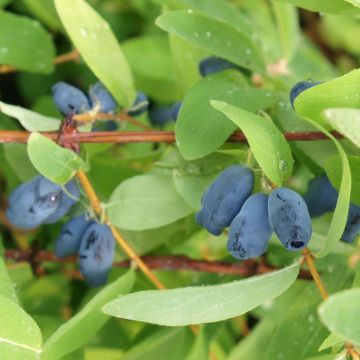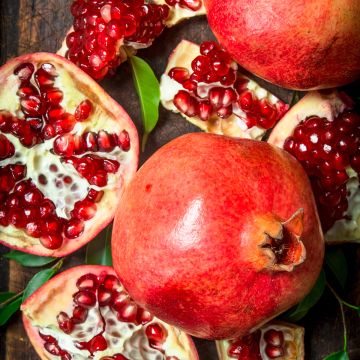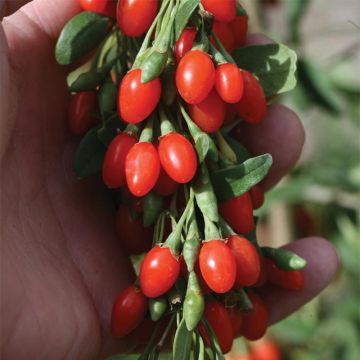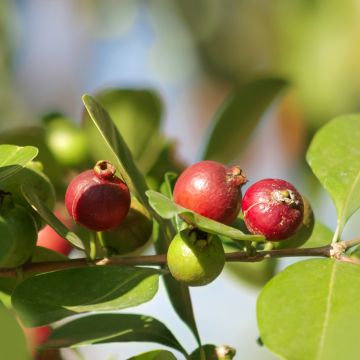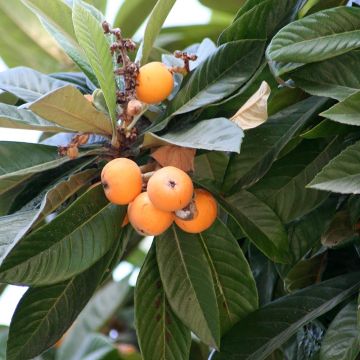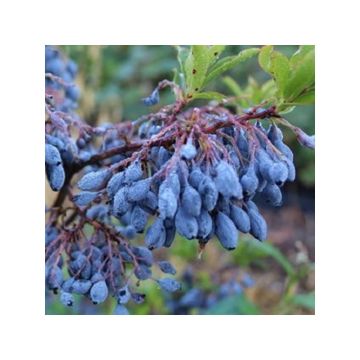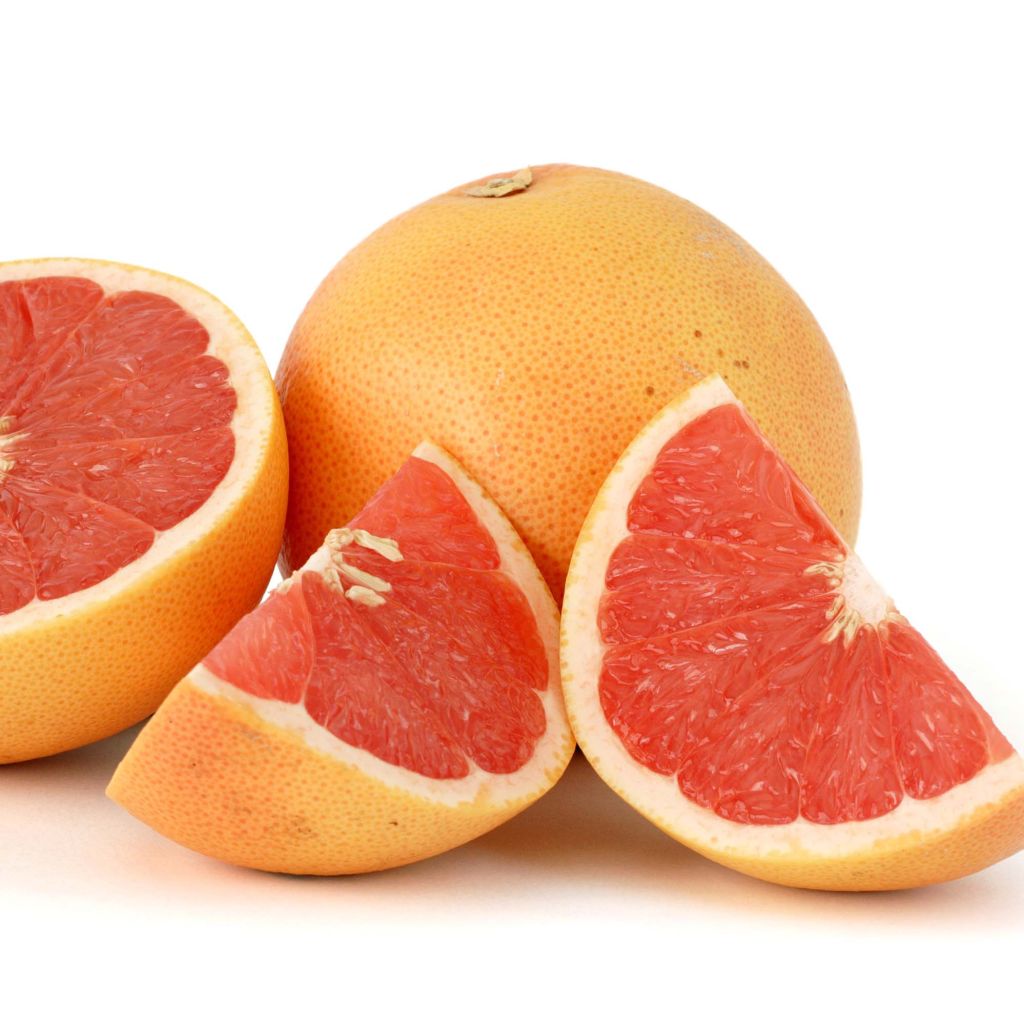

Pomelo Star Ruby - Citrus paradisi
Grapefruit - Citrus x paradisi Star Ruby
Citrus x paradisi Star Ruby
Grapefruit
Agrume un peu carencé nervure un peu marquée, mais bien dévellopé
Dominique Z., 25/03/2018
Special offer!
Receive a €20 voucher for any order over €90 (excluding delivery costs, credit notes, and plastic-free options)!
1- Add your favorite plants to your cart.
2- Once you have reached €90, confirm your order (you can even choose the delivery date!).
3- As soon as your order is shipped, you will receive an email containing your voucher code, valid for 3 months (90 days).
Your voucher is unique and can only be used once, for any order with a minimum value of €20, excluding delivery costs.
Can be combined with other current offers, non-divisible and non-refundable.
Why not try an alternative variety in stock?
View all →This plant carries a 6 months recovery warranty
More information
We guarantee the quality of our plants for a full growing cycle, and will replace at our expense any plant that fails to recover under normal climatic and planting conditions.
Description
The Star Ruby grapefruit, in Latin Citrus x paradisi, is a variety of grapefruit cultivated on a large scale: it is the one most often sold in supermarkets. It is a very productive variety, appreciated for its very pink, almost seedless, juicy flesh with a fragrant, tangy and slightly sweet taste, and a low bitterness. This citrus forms a beautiful bush, which can exceed 6 metres (20 feet) high in open ground, and produces large white and waxy flowers in spring, with a sweet fragrance. Everything is big with this citrus, from the leaves to the yellow fruits, tinged with deep pink, which can exceed 12cm (5in) in diameter. It can be used to make refreshing fruits and superb vitamin-packed fruit salads, even in winter. It is not very hardy and perishes below -7°C (19.4°F). It should be grown in a large container to store in a greenhouse over winter, or in open ground in warm regions spared from heavy frosts.
Citrus x paradisi, Grapefruit in English, has clusters of fruits borne inside the branches. It is probably native to the Caribbean, where its parents Citrus maxima and Citrus sinensis, the orange tree, hybridised. 'Star Ruby' is a famous North American cultivar. It is a large bush of the Rutaceae family. Its habit is naturally rounded. This beautiful tree reaches a height of 6 m and spreads over about 3m (10ft) in open ground if the growing conditions are favourable. Its growth will of course be more limited in a pot. Its young branches are hairy, then become smooth over time. Citrus paradisi Star Ruby flowers abundantly in March-April. It produces large flowers for a Citrus. They are white, star-shaped, divinely fragrant, and gathered in clusters. They give way to round fruits, with a diameter ranging from 10 to 12cm (4 to 5in). Their thick skin is green at first, then yellow and finally pinkish when ripe in hot climates and has a smooth appearance. The translucent pink-red flesh of the fruit is at the same time slightly sweet, tangy, bitter and flavourful. The fruits are harvested in spring in our climates. The large evergreen leaves of this citrus, which are leathery and aromatic, often have a petiole with a small wing.
The Star Ruby grapefruit is consumed fresh or as an appetiser, in desserts and of course as juice. This remarkably juicy fruit has a unique flavour, a subtle blend of acidic, sweet, bitter and fragrant notes. It is also a very beautiful ornamental bush in very mild climates. It is particularly decorative with its superb deep green and shiny foliage, its clusters of large pink fruits and its naturally balanced shape.
Like all Citrus, Citrus x paradisi contains in its leaves, flowers and fruits pockets of essential oil often visible to the naked eye, from which essential oil with antiseptic, tonic and appetising properties is extracted by distillation (flowers and leaves) or by pressing (zest). The fragrance of the essential oil is described as fruity, tangy and slightly bitter, with floral notes.
Most citrus trees thrive in open ground in Mediterranean coastal regions where they find the year-round heat they need. But to fruit well, they must not lack water or nutrients. It is a self-fertile bush, which means that a single bush is sufficient for pollination and fruiting.
Report an error about the product description
Grapefruit - Citrus x paradisi Star Ruby in pictures
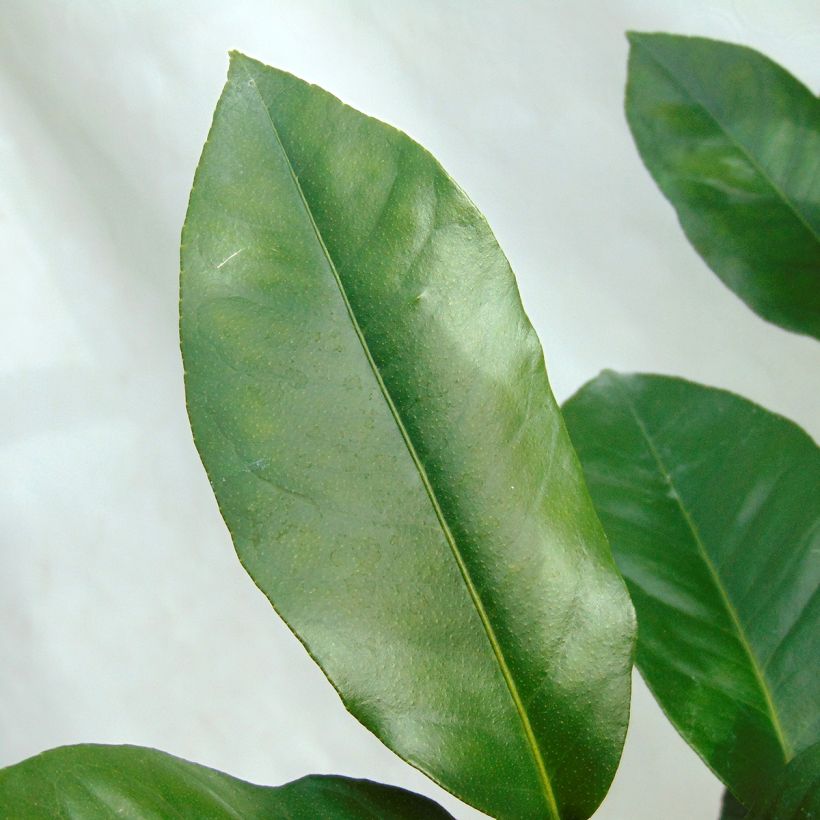

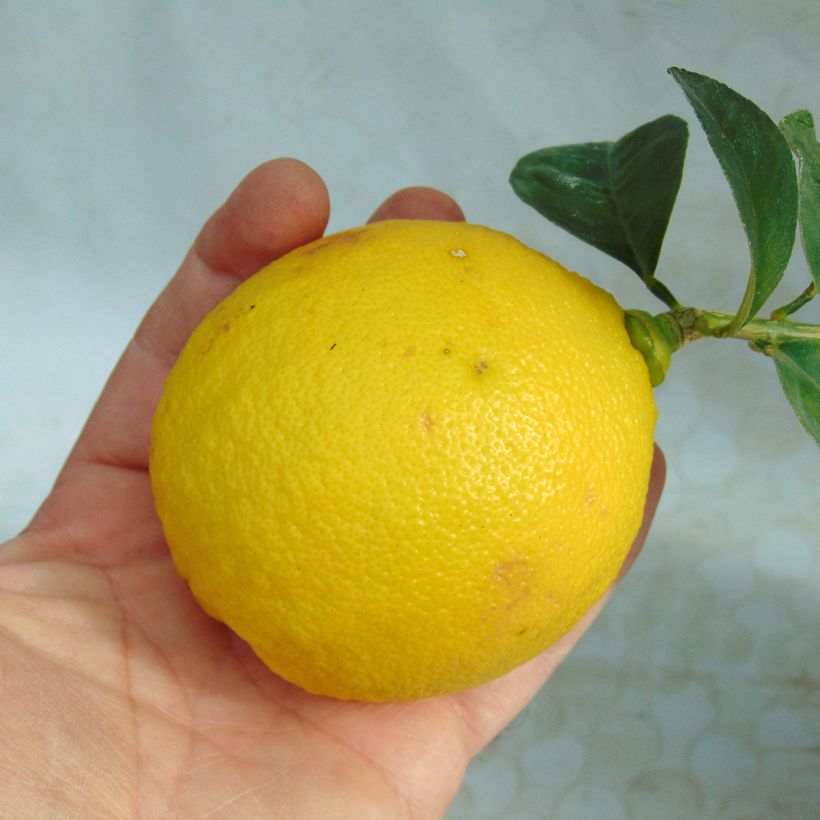

Plant habit
Fruit
Flowering
Foliage
Botanical data
Citrus
x paradisi
Star Ruby
Rutaceae
Grapefruit
Cultivar or hybrid
Other Citrus trees
View all →Planting and care
Planting in the ground: The Star Ruby Grapefruit appreciates neutral, slightly acidic, non-chalky soils, but it is less demanding in terms of soil pH than most other citrus trees. It is only reasonable to plant it in the ground if you live on a Mediterranean coastal strip. The best time to plant is in early spring, in March and April. Be careful not to bury the collar. Citrus trees are naturally greedy and require water to bear fruit well: in all cases, consider adding well-decomposed compost or special "citrus" fertiliser. Choose a sunny but not scorching spot for your bush in a sheltered location to prevent foliage from drying out and young fruits from falling off. Place it in a location protected from sea spray.
Planting in a pot: In all other regions, the Grapefruit should be planted in a pot that you can keep in a frost-free greenhouse or a slightly heated conservatory and it will appreciate being outside in summer. Plant in a pot or repot at the end of summer. Choose a pot slightly larger than the root system, citrus trees do not like to feel cramped. Moisten the root ball well. To improve the drainage capacity of the mix, line the bottom of the pot with clay pellets. Loosen the root ball and mix two-thirds garden soil with one-third special "citrus" potting soil. Water generously. Use pots made of terracotta or breathable materials.
Citrus trees need a lot of water to thrive. Your citrus tree should be watered every day with low or non-alkaline water, and the soil should remain moist at all times. Regularly provide it with the fertiliser it needs: every 6 months for slow-release granular fertiliser or every 3 waterings for liquid fertiliser.
Planting period
Intended location
Care
-
, onOrder confirmed
Reply from on Promesse de fleurs
Similar products
Haven't found what you were looking for?
Hardiness is the lowest winter temperature a plant can endure without suffering serious damage or even dying. However, hardiness is affected by location (a sheltered area, such as a patio), protection (winter cover) and soil type (hardiness is improved by well-drained soil).

Photo Sharing Terms & Conditions
In order to encourage gardeners to interact and share their experiences, Promesse de fleurs offers various media enabling content to be uploaded onto its Site - in particular via the ‘Photo sharing’ module.
The User agrees to refrain from:
- Posting any content that is illegal, prejudicial, insulting, racist, inciteful to hatred, revisionist, contrary to public decency, that infringes on privacy or on the privacy rights of third parties, in particular the publicity rights of persons and goods, intellectual property rights, or the right to privacy.
- Submitting content on behalf of a third party;
- Impersonate the identity of a third party and/or publish any personal information about a third party;
In general, the User undertakes to refrain from any unethical behaviour.
All Content (in particular text, comments, files, images, photos, videos, creative works, etc.), which may be subject to property or intellectual property rights, image or other private rights, shall remain the property of the User, subject to the limited rights granted by the terms of the licence granted by Promesse de fleurs as stated below. Users are at liberty to publish or not to publish such Content on the Site, notably via the ‘Photo Sharing’ facility, and accept that this Content shall be made public and freely accessible, notably on the Internet.
Users further acknowledge, undertake to have ,and guarantee that they hold all necessary rights and permissions to publish such material on the Site, in particular with regard to the legislation in force pertaining to any privacy, property, intellectual property, image, or contractual rights, or rights of any other nature. By publishing such Content on the Site, Users acknowledge accepting full liability as publishers of the Content within the meaning of the law, and grant Promesse de fleurs, free of charge, an inclusive, worldwide licence for the said Content for the entire duration of its publication, including all reproduction, representation, up/downloading, displaying, performing, transmission, and storage rights.
Users also grant permission for their name to be linked to the Content and accept that this link may not always be made available.
By engaging in posting material, Users consent to their Content becoming automatically accessible on the Internet, in particular on other sites and/or blogs and/or web pages of the Promesse de fleurs site, including in particular social pages and the Promesse de fleurs catalogue.
Users may secure the removal of entrusted content free of charge by issuing a simple request via our contact form.
The flowering period indicated on our website applies to countries and regions located in USDA zone 8 (France, the United Kingdom, Ireland, the Netherlands, etc.)
It will vary according to where you live:
- In zones 9 to 10 (Italy, Spain, Greece, etc.), flowering will occur about 2 to 4 weeks earlier.
- In zones 6 to 7 (Germany, Poland, Slovenia, and lower mountainous regions), flowering will be delayed by 2 to 3 weeks.
- In zone 5 (Central Europe, Scandinavia), blooming will be delayed by 3 to 5 weeks.
In temperate climates, pruning of spring-flowering shrubs (forsythia, spireas, etc.) should be done just after flowering.
Pruning of summer-flowering shrubs (Indian Lilac, Perovskia, etc.) can be done in winter or spring.
In cold regions as well as with frost-sensitive plants, avoid pruning too early when severe frosts may still occur.
The planting period indicated on our website applies to countries and regions located in USDA zone 8 (France, United Kingdom, Ireland, Netherlands).
It will vary according to where you live:
- In Mediterranean zones (Marseille, Madrid, Milan, etc.), autumn and winter are the best planting periods.
- In continental zones (Strasbourg, Munich, Vienna, etc.), delay planting by 2 to 3 weeks in spring and bring it forward by 2 to 4 weeks in autumn.
- In mountainous regions (the Alps, Pyrenees, Carpathians, etc.), it is best to plant in late spring (May-June) or late summer (August-September).
The harvesting period indicated on our website applies to countries and regions in USDA zone 8 (France, England, Ireland, the Netherlands).
In colder areas (Scandinavia, Poland, Austria...) fruit and vegetable harvests are likely to be delayed by 3-4 weeks.
In warmer areas (Italy, Spain, Greece, etc.), harvesting will probably take place earlier, depending on weather conditions.
The sowing periods indicated on our website apply to countries and regions within USDA Zone 8 (France, UK, Ireland, Netherlands).
In colder areas (Scandinavia, Poland, Austria...), delay any outdoor sowing by 3-4 weeks, or sow under glass.
In warmer climes (Italy, Spain, Greece, etc.), bring outdoor sowing forward by a few weeks.






























